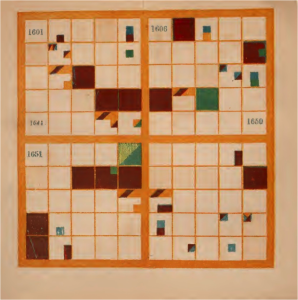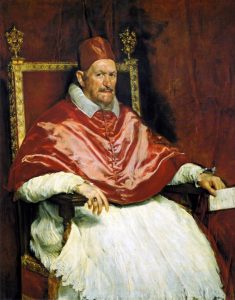Fall 2018 Public Lecture Series
Emory University, Atlanta
All public lectures will take place in the Woodruff Library Jones Room.
Lauren F. Klein, Georgia Institute of Technology
Data by Design: A Cultural History of Data Visualization, 1786-1900
 Data visualization is not a recent innovation. Even in the nineteenth century, economists and educators, as well as artists and illustrators, were fully aware of the inherent subjectivity of visual perception, the culturally-situated position of the viewer, and the power of images in general—and of visualization in particular—to convey arguments and ideas. In this talk, I examine the history of data visualization through the lens of three visualization pioneers: William Playfair (1759-1832), Elizabeth Peabody (1804-1894), and W.E.B. Du Bois (1868-1963), showing how each expressed ideas about data, error, iteration, and interaction through their visual designs.
Data visualization is not a recent innovation. Even in the nineteenth century, economists and educators, as well as artists and illustrators, were fully aware of the inherent subjectivity of visual perception, the culturally-situated position of the viewer, and the power of images in general—and of visualization in particular—to convey arguments and ideas. In this talk, I examine the history of data visualization through the lens of three visualization pioneers: William Playfair (1759-1832), Elizabeth Peabody (1804-1894), and W.E.B. Du Bois (1868-1963), showing how each expressed ideas about data, error, iteration, and interaction through their visual designs.
I contend, moreover, that by attending to how each conceived of these concepts, we might better understand the function of visualization—in the nineteenth century as today—as a way to present concepts, advance arguments and perform critique. My evidence for this second claim is both theoretical and applied; by reimagining these historical charts for the web, and by explaining how the affordances of HTML, JavaScript, and other web technologies enhance certain features while limiting others, I accentuate the arguments that went into the charts’ original designs. This talk therefore describes a digital humanities project and a nineteenth-century one, and among its conclusions is that, when engaging in digital humanities work—and especially work involving visualization—the nineteenth century is never far from view.
Lauren Klein is an associate professor in the School of Literature, Media, and Communication at Georgia Tech, where she also directs the Digital Humanities Lab. With Matthew Gold, she edits Debates in the Digital Humanities (University of Minnesota Press), a hybrid print/digital publication stream that explores debates in the field as they emerge. Her first book, Matters of Taste: Eating, Aesthetics, and the Early American Archive, is forthcoming from the University of Minnesota Press. She is also at work on two new projects: Data Feminism, co-authored with Catherine D’Ignazio, and under contract with the MIT Press, which distills key lessons from feminist theory into a set of principles for the design and interpretation of data visualization, and Data by Design, recently funded by an NEH-Mellon Fellowship for Digital Publication, which provides an interactive history of data visualization from the eighteenth century to the present.
Stephanie C. Leone, Boston College
Nodes and Edges: Architecture in Baroque Rome under Innocent X Pamphilj
 No one would deny that the artist-patron relationship between Gian Lorenzo Bernini and Pope Urban VIII Barberini was one of the most innovative in art history, but the emphasis on celebrities overlooks an important part of the story of building Baroque Rome. In particular, the patronage of Pope Innocent X Pamphilj (r. 1644-55) diverges from this model. Rather than relying on singular relationships, Innocent X harnessed a wide stable of creative and skilled architects, artists, and artisans to realize, in a short period, multiple works of architecture at the Piazza Navona, the Janiculum Hill, the Capitoline Hill, St. Peter’s, and St. John the Lateran. To shift the focus from elite individuals to the range of constituents (nodes) and the relationships (edges) critical to architectural production, I employ Historical Network Research that unites traditional archival research with computational network analysis. This lecture presents the project’s material and sources, research process and objectives, models and questions, and conclusions.
No one would deny that the artist-patron relationship between Gian Lorenzo Bernini and Pope Urban VIII Barberini was one of the most innovative in art history, but the emphasis on celebrities overlooks an important part of the story of building Baroque Rome. In particular, the patronage of Pope Innocent X Pamphilj (r. 1644-55) diverges from this model. Rather than relying on singular relationships, Innocent X harnessed a wide stable of creative and skilled architects, artists, and artisans to realize, in a short period, multiple works of architecture at the Piazza Navona, the Janiculum Hill, the Capitoline Hill, St. Peter’s, and St. John the Lateran. To shift the focus from elite individuals to the range of constituents (nodes) and the relationships (edges) critical to architectural production, I employ Historical Network Research that unites traditional archival research with computational network analysis. This lecture presents the project’s material and sources, research process and objectives, models and questions, and conclusions.
Stephanie C. Leone is Associate Professor of Art History and Chair of the Art, Art History, and Film Department at Boston College. A specialist in Italian Renaissance and Baroque art and architecture, with a focus on Rome, she studies the topics of patronage, the papal court, secular architecture, architectural production, the building industry, art collecting, and material culture. Her publications include a monograph on the Palazzo Pamphilj in Piazza Navona, an edited volume on the art patronage of the Pamphilj family, and articles and chapters on the Pamphilj art collections and other subjects. She is a Fellow of the American Academy in Rome and, in spring 2018, was the Kress Fellow in Digital Humanities at Harvard University’s Villa I Tatti, Florence. She is working on a digital humanities project that will result in a book, Innocent X Pamphilj (1644-1655): Building Baroque Rome, about this pope’s patronage and the architectural production of his building sites.